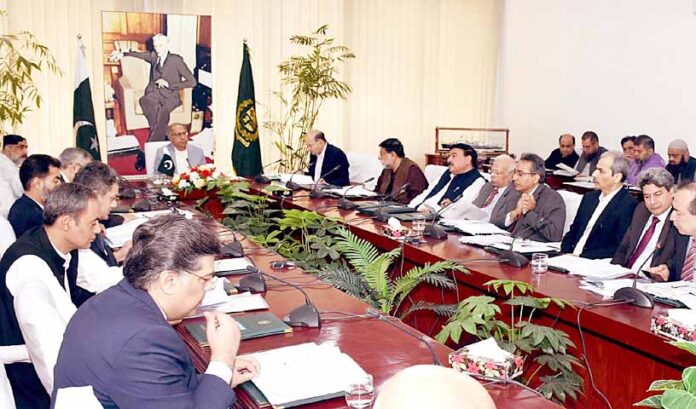ISLAMABAD: The Economic Coordination Committee (ECC) of the Cabinet has approved separate proposals for the simplification of tax regime for non-resident companies investing in the local debt market. It also approved the revision of cess rate on tobacco for the year 2019-20, and payment of outstanding amount of Rs5.85 billion as gas subsidy to the fertiliser industry.
The ECC meeting was held on Wednesday with Adviser to Prime Minister on Finance & Revenue Dr Abdul Hafeez Shaikh in the chair.
The committee was briefed on the overall wheat situation in the country. It was pointed out that there were certain areas such as Karachi where wheat and flour prices had escalated.
The ECC directed the Ministry of National Food Security and Research to consult with all stakeholders so that the situation could be kept in check and the supply of wheat and flour at regular prices could be ensured.
The committee also considered a proposal by the Ministry of Energy for application of quarterly adjustment (notified on 1st July 2019) to the zero-rated industrial consumers and for it to be charged over and above the notified tariff for zero-rated industrial consumers at 7.5 cents.
The ministry also proposed that the financial cost surcharge, Neelum-Jhelum surcharge, taxes and positive fuel adjustments would not be part of the billing to zero-rated industrial consumers and would be part of subsidy claims to be picked by the government.
The committee discussed the pros and cons of the proposal in view of its financial implications and asked the Finance Division to hold a meeting with the stakeholders, including the Power Division, Commerce Division and Industries & Production Division and resubmit the case to ECC with solid proposals.
The ECC also approved proposals submitted by the Ministry of Finance for simplification of tax regime for non-resident companies investing in the local debt market with a view to deepen the country’s capital markets, reduce the cost of debt for the government and increase the inflow of foreign exchange reserves.
The new tax regime, as approved by the ECC, would apply to the non-resident companies having no permanent presence in Pakistan.
The ECC took up a proposal for extension and rehabilitation of gas network in the oil and gas producing districts of Khyber Pakhtunkhwa and referred the matter to the Central Development Working Party, headed by the petroleum secretary, for an appropriate decision.




